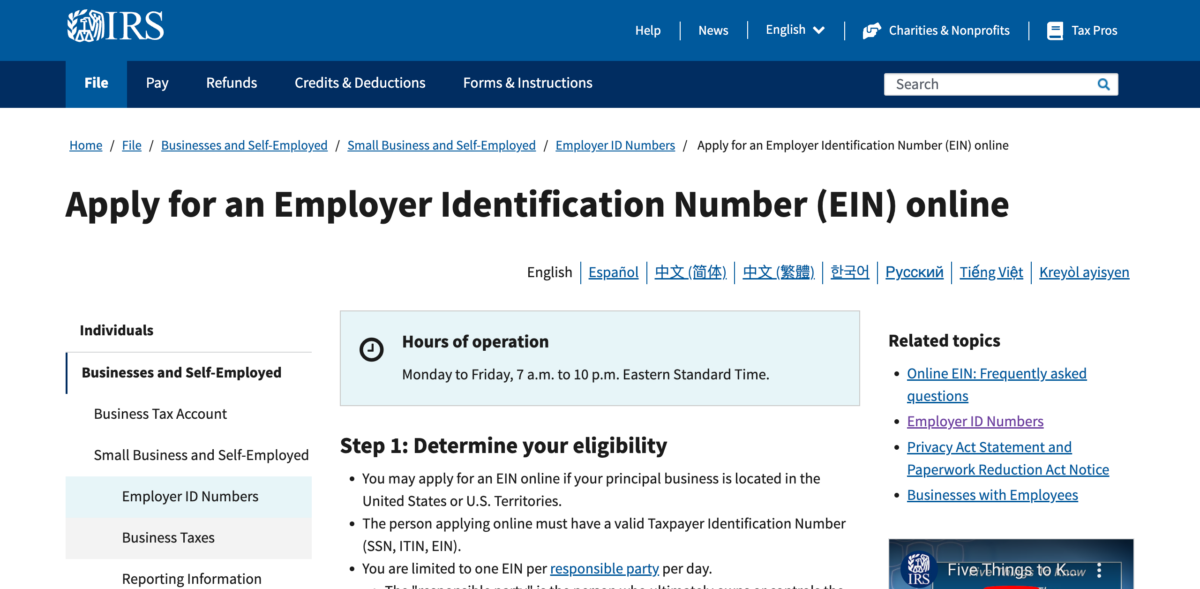Are you a budding entrepreneur striving to embark on your startup journey in a methodical and legally secure way? The remarkable growth in internet usage has paved the path for various ecommerce businesses of all sizes.
The rise in internet users has made way for many small, medium, and large-sized ecommerce stores across the country. As the industry continues to grow, entrepreneurs seek to protect themselves legally and financially with the proper business structure. Setting up an LLC for your ecommerce business is one way to do this.

You can hire a company or follow the steps yourself. Either way, be prepared for filing fees and documents to fill out. Here, we’ll walk you through the general process to set up an LLC, as laws vary from state to state.
Set up LLC: Step-by-Step
We need to follow specific steps for ecommerce LLC business formation. We can carry out these steps ourselves or hire an LLC filing company to handle the process. Irrespective of what you decide, here is a step-by-step guide to setting up an LLC for your ecommerce business.
Step 1: Select the State
The LLC rules are different for each state. Therefore, the first step in the process of setting up an e-commerce LLC is to decide on the state where we want to start an LLC. The state we select will affect the local state laws that apply to the LLC and the filing fee you’ll pay when you form the business entity. State fees vary based on where you’ll be filing.
For instance, to create an LLC in Florida, we must follow local rules for LLCs set up in Florida, and the regulations in other states may vary.
You’ll want to create your LLC in the state where you live, or you’re doing business. If you form your LLC out-of-state, you’ll still need to register it in the state where you’re doing business. Setting it up elsewhere makes it a foreign LLC and creates an additional layer of complexity with taxes and operations.
Step 2: Name the Business
The business name is the second step in setting up an LLC. Forming an LLC provides a separate legal entity for the company, the name selected for the business can be similar to or different from the name of the one you’re operating.
The name of the LLC would be the business’s legal name, and the name of the ecommerce website would be the brand name under which the firm does business. It can be similar or different; it’s up to you. If your ecommerce company name is different than your LLC name, you may also need to file a doing business as or DBA document. Your business name can be but doesn’t have to be, your domain name. So make sure you’ve thought about your branding before hand.
For instance, to create an LLC in Florida, you need to select a unique name for the LLC that is distinguishable when compared to the existing names of businesses in Florida. And the company cannot have a designator (ending) that makes it sound like following a different structure. For example, your LLC name can’t include the following: Inc., Corp., Bank, Trust, etc.
Step 3: Choose an LLC Registered Agent
The third step is to select an LLC registered agent. An LLC registered agent is an authorized representative that accepts legal documents and state notices on behalf of the LLC. Once you decide who will be your Registered Agent (it can be a person or a company providing a registered agent service), you’ll then list the Registered Agent in your Articles of Organization paperwork.
Step 4: File Formation Documents for the LLC Online
It is now time to file the Articles of Organization of the LLC. In some states, they are also known as Certificate of Organization or Certificate of Formation. The Articles of Organization are a formal document that helps us register our LLC with the secretary of state.
For instance, the Florida LLC is approved within 1-2 business days if the Articles of Organization are submitted online and 5-7 business days if the Articles of Organization are submitted by mail.
The items listed under the Articles of Organization are as follows: Name; Principal Office Address; Details of Florida Registered Agent; Details of each Manager/Member; Effective Date and Name and Signature of the Organizer of your LLC.
Step 5: Create an LLC Operating Agreement
The LLC Operating Agreement helps outline the ownership and responsibilities of each Member (owner) in the LLC. This can also be considered a foundation of the LLC that gives us a framework for business operations.
This document does not need to be filed with the Florida Department of State. It is an internal document that can simply be kept with business records. It is a written document that provides all basic details about the business, the share of each Member, duties, and responsibilities, and how profits and losses would be distributed between the Members.
If you’re starting a new business in another state besides Florida, check to be sure that the Operating Agreement doesn’t need to be filed as part of LLC formation.
Step 6: Get an Employer Identification Number (EIN)
The Employer Identification Number or EIN is a unique number mainly used by the Internal Revenue Service (IRS) as a tax ID number. It can be helpful to think of it as a “social security number” for your businesses.

There is no separate fee for obtaining an EIN from the IRS. This number can be obtained for your Florida LLC by mail, online, or fax.
An EIN is required to open a business bank account, process payroll (if applicable), apply for loans, apply for licenses and permits, and more.
An LLC is a pass-through entity where federal taxes are concerned. You’ll file a tax return for your business, noting what you pay yourself and other LLC members for salary. You’ll have to pay income tax as a business, but only pay personal income tax on the earnings the LLC paid you, which can help you save on self-employment taxes compared to filing on your own with a Schedule C on your personal tax return.
Step 7: File your LLC’s Annual Report
All active LLCs in Florida need to file an Annual Report every year to maintain an “active” status in the state. This is also a requirement from the state department to avoid the administrative dissolution of the business.
The Annual Report for the business is required to be submitted before May 1 each year. The Annual Reports submitted after May 1 will attract a hefty fine of $400. Additionally, the state department can order an administrative shutdown of the LLC if the Annual Report is still not filed (the cut-off is the 4th Friday of September).
You can submit the LLC Annual Report online. Once submitted successfully, the user will get a success message on the screen.
Step 8: File for business licenses/permits
Once the LLC has been formed, it is time to file for the necessary licenses and permits. As Florida does not have a general business license requirement, you need to obtain a license or permit depending on where you’re going business. You’ll need to check with your local city or county to see if there are any requirements.
Some examples of permits that may be required are a building permit, health permit, seller/reseller permit, occupational permit, and sales & use tax permit.
Step 9: Open a bank account
Once the LLC is approved and you’ve received an EIN Number from the IRS, you can open an LLC business bank account for your LLC. Novo is a good option.

We recommend calling the bank ahead of time to check on the requirements, however, most banks will require a copy of your LLC paperwork, your EIN Confirmation Letter, and some form of personal identification, like your driver’s license or passport.
You’ll pay all your business operation expenses out of this account, including your self-employment income. You as an individual will be on your LLC payroll.
Common Questions
The Role of a Business Lawyer in the LLC Formation Process
Indeed, setting up an LLC for your eCommerce enterprise comes with its fair share of legal, tax, and regulatory intricacies. This is where the expertise of a business lawyer comes handy. They bring to the table a wealth of knowledge and experience that can streamline the entire process and help you navigate through potential pitfalls.
So, you may wonder what exactly the role of a business lawyer is in the LLC formation process. The primary job of a business lawyer is to ensure that your business is legally compliant. From advising on the right state to form your LLC, providing guidance on structuring the operating agreement, to helping secure necessary licenses and permits — they are your guide through the legal labyrinth.
A business lawyer can also clarify any jargon or technicality in the formation process, ensuring that you understand every step you are taking. They can also advise on tax implications and benefits associated with operating an LLC. Legal advice during the formation phase can prevent future disputes or potential lawsuits, saving you time, stress, and financial resources in the long run.
However, hiring a business lawyer is not compulsory for forming an LLC. Many entrepreneurs successfully set up their LLCs using online services or performing the process on their own. But if you are unsure or find the process daunting, seeking professional legal advice might be a worthwhile investment.
Next Steps After Formation
At the outset, creating an LLC for your online retail business may seem rather overwhelming. However, bear in mind that each step in this process is crafted to provide you with substantial advantages. From delivering vital asset protection to simplifying profits distribution, an LLC structure is tailored to foster the growth of your enterprise. It not only gives authenticity to your offerings but also builds a trustworthy relationship with your customers, and provides a robust structure for your business operations.
Having acquired all the necessary insights, your subsequent move should be towards potentially securing funding for your ecommerce venture. Either way, your focus should turn to sourcing and marketing products.
Note: This post is for informational purposes only, and should not be taken as financial or legal advice. Speak with an attorney and accountant to be sure you’re making the best possible choices for your business.










